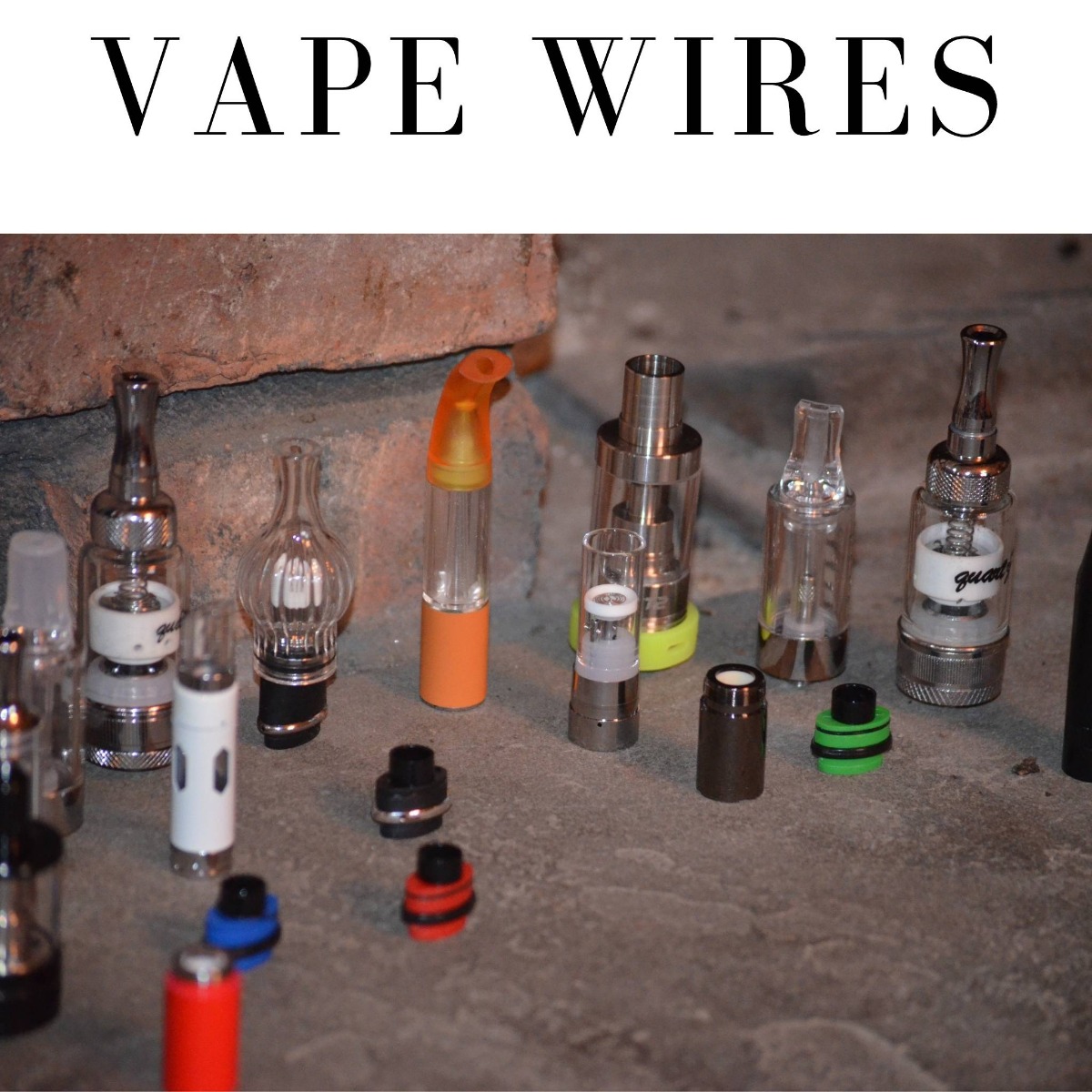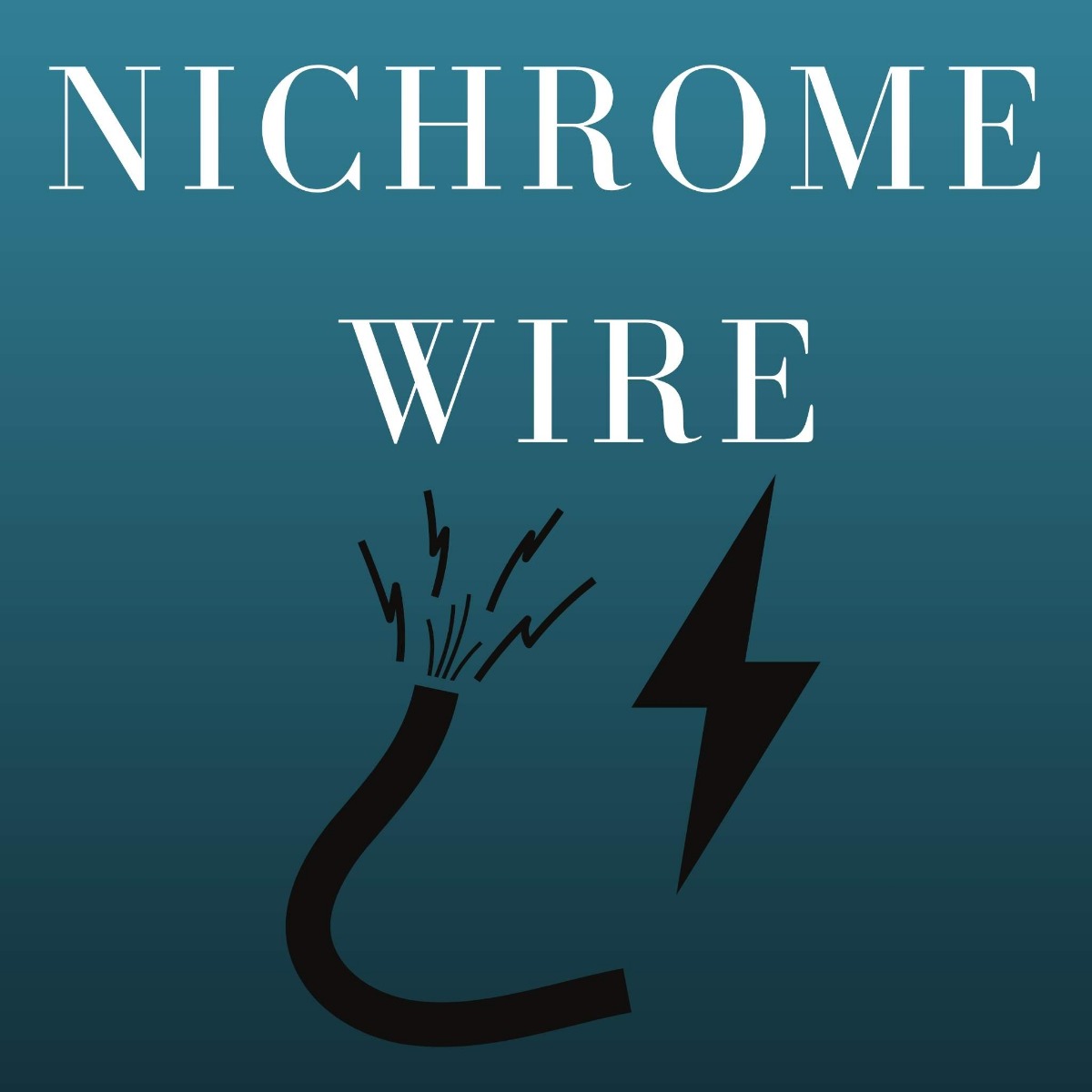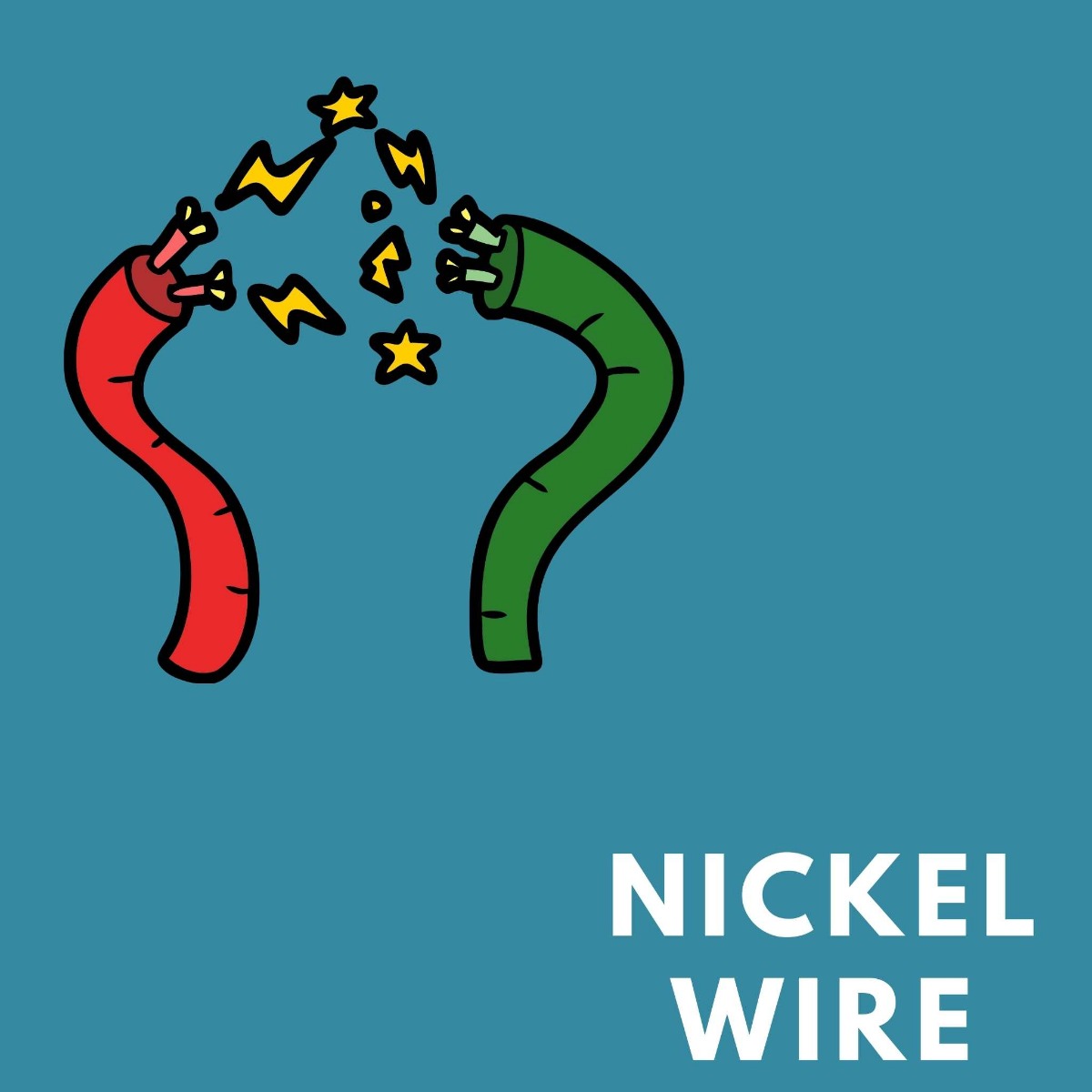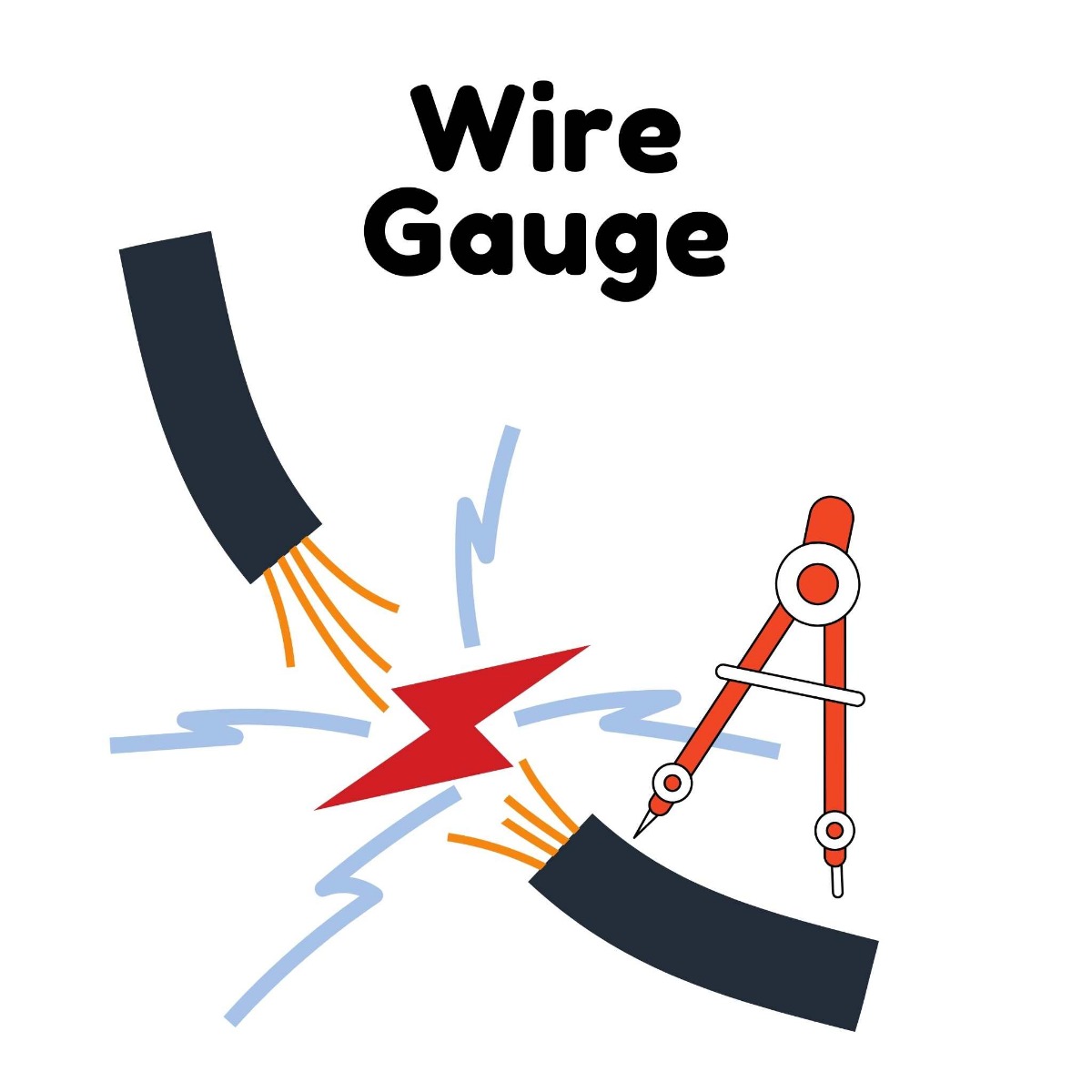What are the Types of Vape Wires found in Vape Coils
While vaping wires may not seem like a big deal, they play a very important role in any vape session. Different wires can determine how a vape will taste or even how fast it will take for the coil to heat up. Read on to learn more about vape wires so you can choose the best wire option for your preferences.
Whether you are looking for a replacement coil or wanting to build your own, you need to understand how the wire will affect your vaping. There are two main areas you need to consider when picking out a vaping wire - the size and the material of the wire. These two components can determine not only whether or not it will work within your device, but can also alter the flavor, the time it takes to heat up, and the overall production of vapor (or vape clouds).

What Types of Vape Wires Are There?
Different wire types can provide slightly different flavors for the user. Each material has its own benefits and pitfalls. Knowing the differences between these materials can help to determine not only what will work with your device, but also which one will be a perfect match for both your personal vaping style and preferences.
Generally, vaping wires are used to make coils. They are made from one of five different materials and are only usable under specific criteria. Remember, using any wire incorrectly is dangerous and could potentially result in a hazardous situation. Therefore, it is crucial to understand each type of vaping wire and what type of circumstances it can be used for. Vaping wire materials include:
Kenthal Wire
Kanthal is the wire that started everything. It is the most commonly used vaping wire for over a decade. It is preferred by amateurs and industry professionals alike and is recognized as an extremely affordable, high-quality vape wire that works only with wattage mode. Kanthal is oxidation resistant, durable, and is the easiest type of vape wire to work with. Plus, this type of vape wire is able to withstand exceedingly high temperatures before it begins to melt.
The biggest downfall to Kanthal wires is they do not produce a good flavor. Due to this, many vapers tend to think twice about using it. It also takes longer than some wire types to heat up.

NiChrome Wire
NiChrome is recommended for those vaping using the wattage mode. It is a popular choice among advanced build vapers because NiChrome requires very little time to heat up, it holds it is shape well, and is very easy to work with. Nonetheless, it is very important for users to consider prior allergies before using this wire type. In fact, anyone who is allergic to Nickel should avoid using NiChrome wires.
Compared to Kanthal, NiChrome is a more advanced option for a vape coil wire and has a lower melting point. It is made up of two powerful elements - chromium and nickel. This type of wire heats up fairly quickly, so it is important to pay attention to your wire, so you do not inadvertently cause a fire.
Many experienced users consider NiChrome a decent wire type. Although it can be harder to locate in your local smoke or head shops, do not fret if you cannot find it. The majority of online retailers tend to offer some form of NiChrome wire.
Nickel Wire
Nickel wire is commonly known as Ni200 (or pure nickel) and creates some of the best flavorings you can find in vaping. It is the first type of temperature control wire to be utilized. Other common disadvantages include (but are not limited to) difficulties creating uniform coils and deformation during the wicking process.
Another thing nickel has working against it, is many users are uncomfortable vaping it. Not to mention, many people have various degrees of sensitivity or allergies to nickel. Due to this, it is advised to avoid NiChrome, nickel, and stainless steel if you experience any sort of nickel allergy.
Nickel wire is very inexpensive and is easy to find at your local headshop. While it is popular amongst temperature control vaping enthusiasts, nickel cannot be used for wattage mode. Otherwise, you are risking overheating, it melting, or even poisoning you.

Stainless Steel Wire
Stainless steel is relatively inexpensive, and the only double-duty vape wire option available (meaning it can be used for both temperature control and wattage mode). This makes it the perfect wire choice for vapers who use both mode options. It is also durable, flexible, easy to use, and stainless steel holds its shape very well.
Stainless steel wires come in a large assortment of suitable grades for building vape coils (with the specific grade determining how difficult it is to work with. The downside to this is having various grades means different experiences for the user. Depending upon your needs and wants will determine which stainless steel wire grade you prefer over another.
Titanium Wire
Titanium wire is only recommended for use with temperature control because once titanium reaches its maximum heat capacity, it releases titanium oxide. Plus if used with wattage mode and you go above the temperature capacity, you risk having a nearly impossible to put out fire on your hands.
Keep in mind, titanium wires are not for beginners. In order, to use a titanium wire for your coil, you need to be well-versed in building coils. However, titanium wire does have its perks. This type of wire is extremely durable and will allow you to go longer between wire/coil changes. Titanium wires also provide users with clean and crisp hits, are easy to work with, and holds their shape extremely well.
The downside to titanium wires is they are exceedingly expensive and hard to find. Plus with the toxicity concerns and the difficulty in extinguishing fires, many users tend to steer clear of this type of wire.

What is Wire Gauge?
Simply put, a wire gauge refers to the diameter of the wire. Typically, a vaper will use one of the following wire gauges - 22, 24, 26, 28, 30, or 32. The larger the number of the wire gauge, the thinner the wire will be. For example, a 30-gauge wire has a diameter of .25 millimeters, while a 24 gauge wire will have a diameter of .51 millimeters.
Unfortunately, a thicker wire does not mean it is more durable. In fact, thinner wires tend to have longer durability because they have a higher resistance than thicker wires. They last longer partially because they take less time to heat up, so they require less usage to achieve the desired results.
Can Temperature Control and Wattage Effect Your Choice in Wire?
There are two main modes for vaping - temperature control and wattage. While it would be wonderful if you could use any wire when vaping, it does not work like that. This is due to wire behavior because wires tend to behave differently depending upon the type of wire being used. In order to have a successful vaping session, you need to choose a wire that will not only behave in the manner you are looking for but one that will also work with the specific mode of vaping you (and your device) uses.

Which Is the Best Vape Wire?
Like many other vaping products, there is no right or wrong answer to this. What is best for one user may not be the best option for the next. It all depends on the needs and wants of the vaper. Each wire option has its own benefits and disadvantages, and you need to choose an option that will work with your specific needs, wants, and mode of vaping.
Related Blogs
What Makes The Best Vape Gear in 2021
Is Vaping Cheaper Than Smoking
Blog Categories
- Home
- Industry News
- Vaporizer Reviews
- Dry Herb Vape Tutorials & FAQ
- Wax Pen Vape Tutorials & FAQ
- Oil Vape Pen Tutorials & FAQ
- Vaping Guides & Information
- Dabbing FAQ & Guides
- Smoking Pipe Tutorials
- NY Vape Shop Listicles
- Vape Pen Comparisons
- Vape Shop How To Articles
- Vape Shop Buyers Guide
- Vape Pen Basics
- Herb Grinder Reviews
- Dry Herb Vaporizer Reviews
- Oil Vape Pen Reviews
- Wax Pen Reviews
- Box Mod Vape Reviews